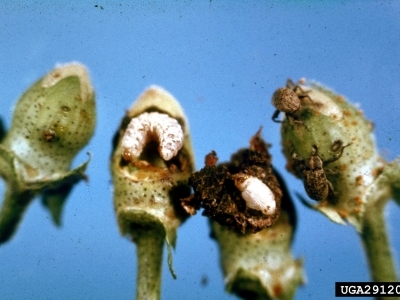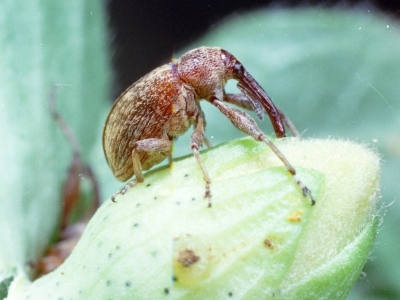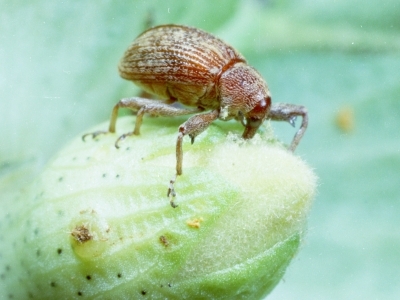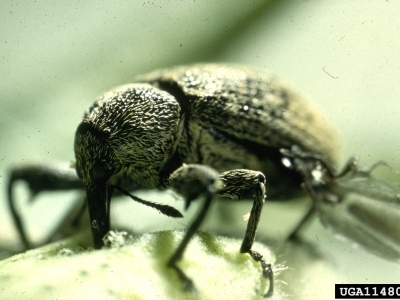Cotton Pests
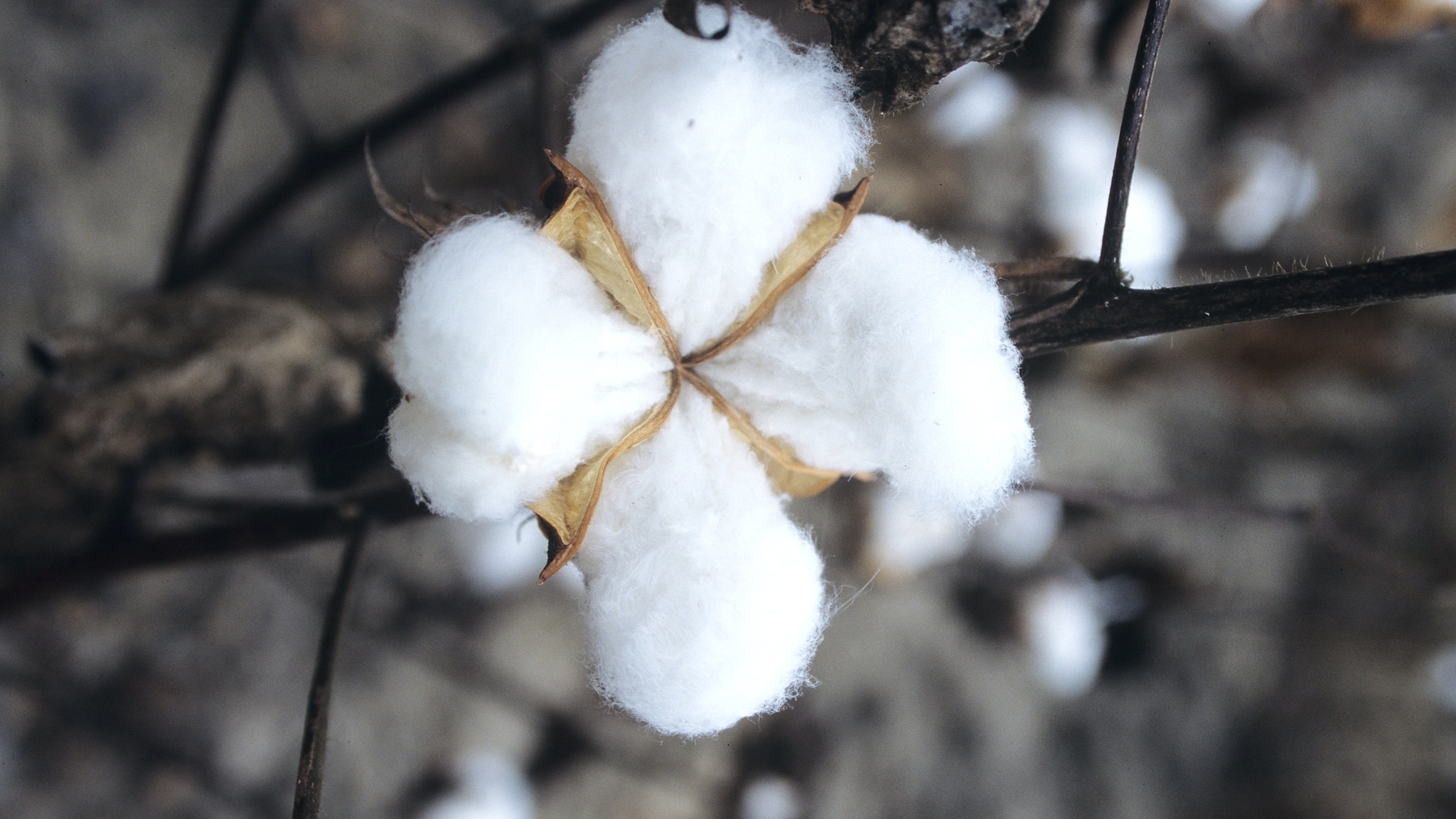
Boll weevil (Anthonomus grandis) and pink bollworm (Pectinophora gossypiella) are serious cotton pests. For much of the 20th century, they caused tens of millions of dollars in damage to cotton producers, reduced land values, and greatly disrupted local economies. Both pests entered the United States from Mexico—boll weevil in the 1890s and pink bollworm in 1917.
APHIS launched the Boll Weevil Eradication Program in 1978 in North Carolina and Virginia. We expanded the program to Alabama, Florida, and Georgia in 1988. This program eradicated this pest from more than 99 percent of U.S. cotton acreage. In 2018, APHIS and industry partners successfully eradicated pink bollworm (175.34 KB) from commercial cotton in the United States.
Adult boll weevils damage cotton by feeding on and laying eggs inside the flowers (squares) and cotton bolls. Feeding may cause smaller bolls to drop from the cotton plant. Larger bolls that do not drop may be susceptible to boll rot and other infections. Egg-laying females create an oviposition hole for each egg, then seal it up with frass (droppings), producing a characteristic brown site. A single female may produce up to 200 eggs in her lifetime.
Larvae and Pupae
After boll weevil eggs hatch, the larvae feed on the square and/or boll tissue for 7 to 14 days, then pupate for approximately 5 days. Larval damage at infested squares may cause the cotton plant to drop bolls or render any remaining cotton unsuitable for harvest.




Adult and larval boll weevils damaging cotton. Photo courtesy of Herb Womack, University of Georgia, Bugwood.org
Adult boll weevil. Photo courtesy of Clemson University - USDA Cooperative Extension Slide Series, Bugwood.org
Adult boll weevil. Photo courtesy of Clemson University - USDA Cooperative Extension Slide Series, Bugwood.org
Close up of an adult boll weevil feeding on a cotton boll. Photo courtesy of USDA APHIS PPQ - Oxford, North Carolina , USDA APHIS PPQ, Bugwood.org
Boll weevil eradication activities continue inside the quarantine zone located in the Lower Rio Grande Valley, Texas. Vigilant surveillance for boll weevil and other cotton pests is critical to prevent their establishment in commercial cotton. If you see the pest or pest damage, report it immediately.
Inside the quarantine area, boll weevil is treated with insecticides in accordance with label instructions and eradication protocols. Every boll weevil captured outside of the quarantine must be reported immediately to the State Plant Regulatory Official or State Plant Health Director.
Report Plant Pests and Diseases
Have you seen this pest or signs of pest damage? Immediately report your findings.
Find your State plant regulatory official
Find your State plant health director
Controlling Cotton Pests
Minimum Standards for Boll Weevil Post-Eradication (34.94 KB)
This document provides a template for boll weevil post-eradication activities.
Check out the links below to learn about ongoing boll weevil survey and eradication programs.
- Texas Boll Weevil Eradication Program
- National Cotton Council Boll Weevil Eradication Program


